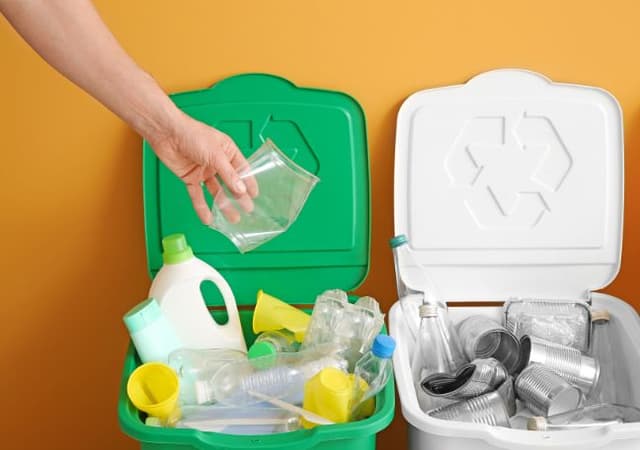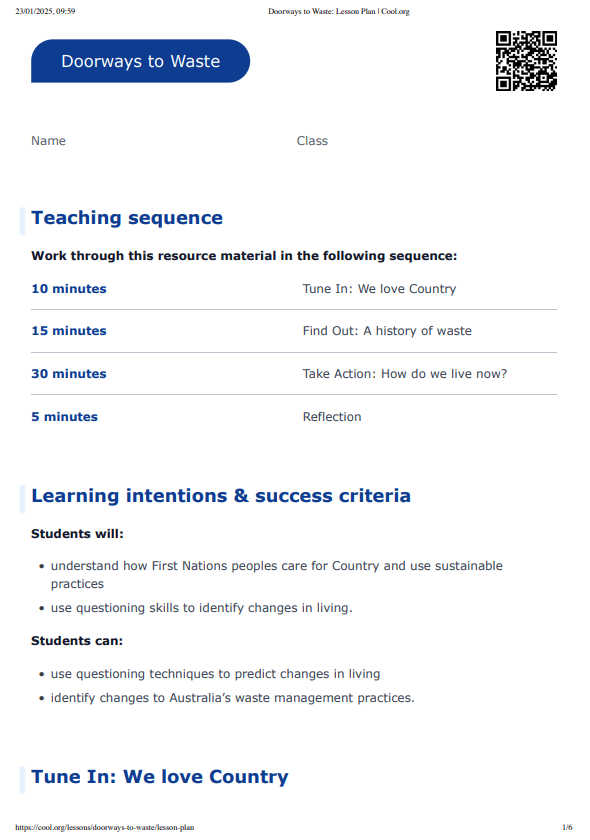Learning intentions:
Students will...
- understand how First Nations peoples care for Country and use sustainable practices
- use questioning skills to identify changes in living.
Success criteria:
Students can...
- use questioning techniques to predict changes in living
- identify changes to Australia’s waste management practices.


